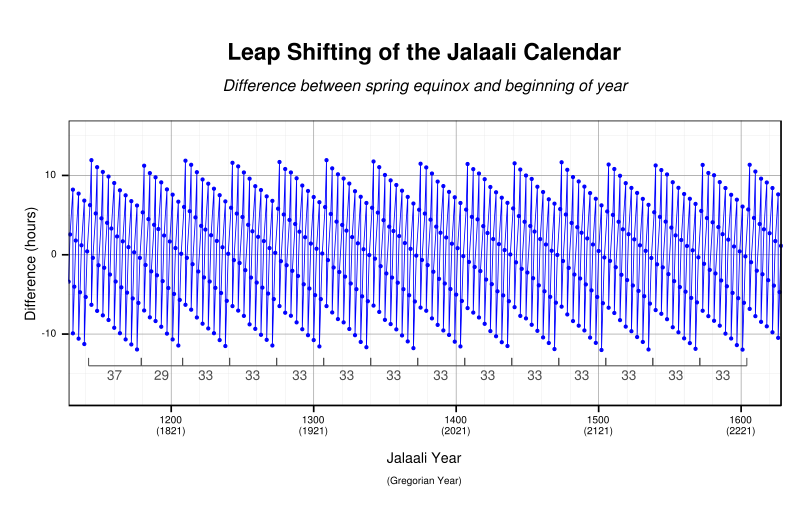06.10.2016, 21:50
(
Последний раз редактировалось mrsh; 13.08.2018 в 21:47.
)
JDF - Jalali Date [and Time] functions
The Jalali calendar is a solar calendar that was used in Iran (Persia), variants of which today are still in use in Iran as well as Afghanistan. It gains approximately 1 day on the Julian calendar every 128 years. The tropical Jalali calendar (Persian: گاهشماری جلالی or تقویم جلالی), which inherited some aspects from the Yazdgerdi calendar, was adopted on 15 March 1079 by the Seljuk Sultan Jalal al-Din Malik Shah I (for whom it was named), based on the recommendations of a committee of astronomers, including Omar Khayyam, at the imperial observatory in his capital city of Isfahan. Month computations were based on solar transits through the zodiac, a system integrating ideas taken from Hindu calendars[citation needed], read more on Wikipedia.
Calendar conversion is based on the algorithm provided by Roozbeh Baabakaan.
Jalali Date [and Time] functions is created by Shayan Rahmani (a.k.a. MrSh) and is released under the terms of GNU GENERAL PUBLIC LICENSE v3.
Current version v1.3 [05th Feb 2018]
https://github.com/Rahm4ni/SAMP-JDF/blob/master/JDF.inc

Код:
* Jalali(g_y, g_m, g_d, &j_y, &j_m, &j_d)
* Gregorian(j_y, j_m, j_d, &g_y, &g_m, &g_d)
* JDate(year, month, day)
* JDatestamp()
* TimestampToJDate(Timestamp, &year, &month, &day, &hour, &minute, &second, HourGMT = 3, MinuteGMT = 30)
* JDateToTimestamp(year, month, day)
* ReturnJDate(timestamp)


